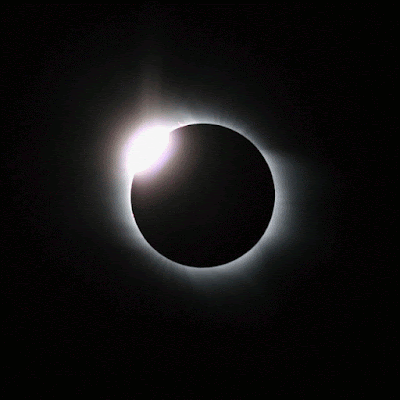March 16, 2016
Book Review : Aurora by Kim Stanley Robinson
March 16, 2016"... There are many other living intelligences out there, no doubt, but they can't leave their home planets any more than we can,...
"... There are many other living intelligences out there, no doubt, but they can't leave their home planets any more than we can, because life is a planetary expression, and can only survive on its home planet."
(Aurora by Kim Stanley Robinson - page : 428)
Cover of the novel Aurora by Kim Stanley Robinson
Language : English
Pages : 480
Media type : Ebook
Genre : Science fiction
Publisher : Orbit
ISBN 9780316098106
Publication date : July 7, 2015 (1st Edition)
* * * *
A generation ship is launched from Saturn in 2545, consisting of twenty-four self-contained biomes and an average population of two thousand people. One hundred sixty years and approximately seven generations later it is beginning its approach to the Tau Ceti system to begin colonization of a planet's moon, an Earth analog, which has been named Aurora.
Devi, the ship's de facto chief engineer and leader, is concerned about the decaying infrastructure and biology of the ship: systems are breaking down, each generation has lower intelligence-test scores than the last, and bacteria are mutating and evolving at a faster rate than humans. She tells the ship's AI, referred to simply as 'Ship,' to keep a narrative of the voyage. After having some trouble with understanding the human concept of narrative, Ship eventually elects to follow the life of Devi's daughter Freya as a protagonist.
As a teenager, Freya travels around the ship on her wanderjahr, and learns that many of the ship's inhabitants are dissatisfied with their enclosed existence and what they perceive as a dictatorship. Movement is strictly limited for most people, reproduction is tightly controlled, and education in science and mathematics is mandatory. Freya's wanderjahr comes to an end when she is called home as Devi grows sick from cancer and dies.
The ship arrives in the Tau Ceti system and begins to settle Aurora, a moon of Tau Ceti e. It soon becomes apparent that extraterrestrial life is present in the form of primitive prions, which infect and kill most of the landing party. The surviving settlers attempt to return to the ship, and some of those remaining onboard kill them in the airlock to maintain quarantine, leading to a violent political schism throughout the ship. Ship itself, which has been moving towards self-awareness, takes physical control of the situation by lowering oxygen levels and separating warring factions, referring to itself as "the rule of law." Under Ship's moderation, a more peaceful debate takes place between the inhabitants about what to do now that Aurora is known to be inhospitable. Eventually it is decided that some settlers will remain on a different planet in the Tau Ceti system which is likely to be free of hostile life; others decide to return to Earth in the ship.
On the voyage back to Earth, the ship's biomes continue to deteriorate as bacteria flourish and crops fail. The humans soon face famine, and opt to experiment with an untested form of cryogenic freezing, which is largely successful. Upon returning to the Solar system, Ship is forced to decelerate by means of gravity assist between various planets, a process which takes twelve years. During this time, with the full communications data of humanity available to it, it learns more about why it was launched in the first place - simply for expansionism - and denounces its builders as "criminally negligent narcissists." Ship manages to safely drop its humans off on a pass of Earth, but fails to successfully make a final gravity slowdown past the Sun, and is destroyed.
Freya and the other "starfarers" have trouble adjusting to life on Earth, especially with many Terrans hostile to them for a perceived sense of ingratitude and cowardice. At a space colonization conference, a speaker says humanity will continue to send ships into interstellar space no matter how many fail and die, and Freya assaults him. Eventually she joins a group of terraformers who are attempting to restore the Earth's beaches after their loss during previous centuries' sea level rise. While swimming and surfing, she begins to come to terms with life on Earth.
Major themes in Aurora include complexities of life aboard a multi-generational starship, artificial intelligence, and the feasibility of star travel.
About the Author
Kim Stanley Robinson, (born : March 23, 1952 (age 63)
Waukegan, Illinois, US) is an American science fiction writer, probably best known for his award-winning Mars trilogy.
His work delves into ecological and sociological themes regularly, and many of his novels appear to be the direct result of his own scientific fascinations, such as the 15 years of research and lifelong fascination with Mars which culminated in his most famous work. He has, due to his fascination with Mars, become a member of the Mars Society.
Robinson's work has been labeled by reviewers as "literary science fiction".
Excerpted from Wikipedia.
* * * * *
This is the 25th book read of 2016 : Aurora by Kim Stanley, and i really liked this book. An intriguing and exceedingly detailed story of a journey to another planet frought with the biological, sociological and anthropological issues of interstellar travel. I was also introduced to the degree of "hardness" in science fiction. Highly Recommended!
And now, i think... i need more Robinson's books. Now. Yes, now!! OMG, NOW!!!


















